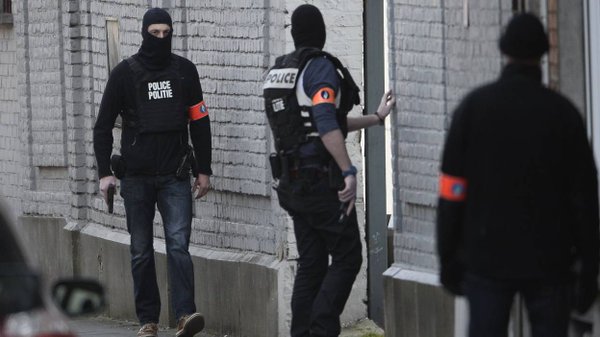At least 22 members of ISIS cell linked to Brussels, Paris attacks believed still at large

Security services in Europe reportedly are searching for at least 22 homegrown jihadists with ties to the ISIS cell that carried out last month's terror attacks in Brussels, as well as last November's coordinated assaults in Paris.
The Wall Street Journal, citing court documents, as well as interviews with security officials and acquaintances of the wanted men, say that the ISIS operatives became radicalized in Molenbeek, the now-notorious Muslim-majority section of Brussels known as a breeding ground for extremism.
"We see many plots and several cells that we now know are part of the same network," Jean-Charles Brisard of the Center for the Analysis of Terrorism told the Journal. "They’re already here. The problem is how to find them."
According to the Journal, the key figure in recruiting the fugitives to ISIS was Khalid Zerkani, a preacher who was sentenced to 12 years in jail for recruiting young men to fight in Syria.
The testimony of one of the wanted men's mothers reveals the extent to which her son fell under the spell of radical Islam. The jihadist, Yoni Mayne, began wearing traditional Muslim dress and growing a beard after spending time with Zerkani, she said.
"One day he threatened to kill me, because I was the devil," the woman said of her son, now 25 years old. Radical groups that Mayne fought with in Syria claimed he was killed in 2014, but European authorities question whether that is really the case.
Another wanted man, 32-year-old Sami Zarrouk, raised an alarm when he told his in-laws he wanted to move to Afghanistan with his wife and train her to become a suicide bomber. Zarrouk went to Syria in July 2013 and later sent a text to his father-in-law saying that he was divorcing his wife.
The day after the March 22 attacks in Brussels, which killed 32 people at the city's airport and a subway station, the Associated Press reported, citing European and Iraqi officials, that ISIS had trained at least 400 fighters to target the continent, with standing orders to choose the time and place with an eye toward maximum bloodshed and chaos.
The Brussels attacks and their links to the Nov. 13 terror that killed 130 people in Paris has raised new questions about the ability of Europe's security apparatus to identify and neutralize homegrown terror threats.
Политика конфиденциальности | Правила пользования сайтом








